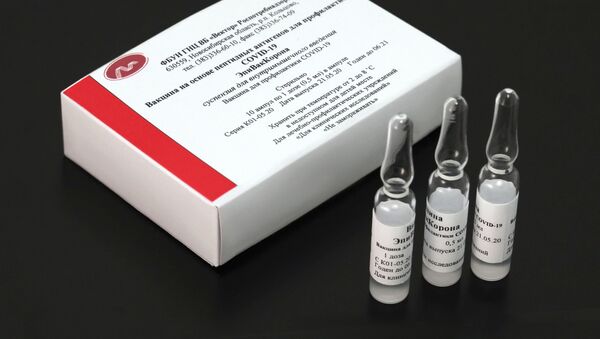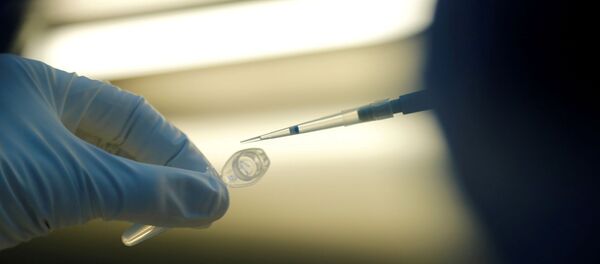The nation’s second vaccine against COVID-19, dubbed "EpiVacCorona", was officially registered by the "Vector" centre on 14 October, Russian President Vladimir Putin has announced. He added that a third Russian coronavirus vaccine, developed by the Chumakov Centre, would also be registered in the near future.
Russian Deputy Prime Minister Tatyana Golikova has praised the new drug as having lesser side effects after the injection. She added that the first 60,000 doses of EpiVacCorona would be manufactured in the "near future".
"The Vector centre is also initiating post-registration clinical trials in the various regions of Russia that would include 40,000 volunteers", she said.
The Deputy Prime Minister shared that she tested the new vaccine herself, being among the new wave of volunteers, experiencing no side-effects, not even a mild fever as a result. She noted that to her knowledge none of the volunteers had experienced problems with EpiVacCorona so far.
Golikova noted that the trials will include 150 volunteers aged above 60, suggesting that EpiVacCorona might be suitable for elderly people.
What is Known About Second Russian Coronavirus Vaccine?
The EpiVacCorona is a peptide synthetic vaccine based on a recombinant virus. Such vaccines mimic certain parts of the pathogen they are designed to protect from, making the human body produce antigens capable of fighting the real virus. The "Vector" centre explained that upon injection the EpiVacCorona vaccine stimulates intracellular synthesis of COVID-19’s parts, thus forcing a body to produce an immune response, both on a cellular level and by releasing antibodies into a person's blood and lymphs.
Vector added that its treatment differs from Sputnik V, in terms of the "target group" for the vaccine and in terms of how many injections are required to form the lasting immune response. Sputnik V, the world's first vaccine against COVID-19 developed by the Gamaleya Institute and registered in August, is a vector vaccine using human adenoviruses to deliver the parts of the coronavirus into an organism. Gamaleya's drug requires two injections, using different adenoviral vectors, in order to form immunity from the coronavirus that can last up to two years.
The third Russian vaccine, developed by the Chumakov Centre, is also based on a different principle than the previous two drugs. It will be using weakened or deactivated real sars-cov-2 viruses, which will not be able to give the recipients COVID-19, but will still form a lasting immunity from the coronavirus infection. The current stage of clinical trials involving 300 volunteers is set to finish by December 2020.






